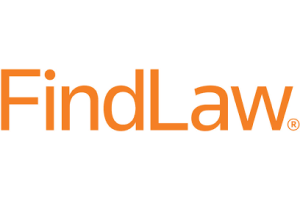as a Consumer
Understanding Florida Repossession Laws: A Comprehensive Guide

When dealing with vehicle repossession in the state of Florida, it’s crucial to navigate the process with a thorough understanding of the laws that govern it. Florida has specific regulations that dictate the permissible actions, timelines, and rights of both lenders and borrowers. Let’s delve deeper into the key aspects that Florida citizens may have questions about.
How Many Payments Can Be Missed Before a Car Repossession?
In the Sunshine State, the number of missed car loan payments triggering a car repossession can vary based on the terms stipulated in your loan agreement. While lenders commonly reserve the right to initiate repossession proceedings after a single missed payment or delinquent car loan balance, it’s prudent to meticulously review the car loan agreement. By doing so, borrowers can discern the specifics of their payment terms, potential grace periods, and the lender’s repossession policies.
How to Know When You Can Expect a Car Repossession?
Staying informed about the schedule for car payments and making timely payments, carefully reading correspondences from the lender, and proactively addressing financial challenges can help anticipate and respond to potential repossession.
What Are Repo Men Allowed to Do to Repossess a Car?
Repossession agents in Florida operate within a legal framework that allows them to reclaim a motor vehicle in cases of delinquency, but strict regulations govern their actions to prevent abuse and protect consumers. If you think your repo rights were violated contact Thompson Consumer Law Group for a free no obligation analysis of your situation.
Accessing Public Areas vs Private Property Access:
Repo agents have the right to repossess a vehicle from public spaces without breaching the peace. This includes streets, parking lots, or driveways accessible to the public. They can initiate repossession without specific authorization in these areas.
However, when it comes to private property, repo agents must tread carefully. While they can enter private property to repossess a vehicle, they must do so without breaching the peace. This means they generally cannot use forceful methods, threats, or intimidation to gain access. If the borrower protests, repo agents must cease the repossession attempt.
Repo agents are legally obliged to respect property boundaries and personal property during the vehicle repossession. They cannot enter enclosed areas, like closed garages or fenced (and locked) spaces, without proper authorization. The emphasis is on ensuring that the vehicle repossession process does not infringe on the privacy and security of the borrower’s personal space.
What Constitutes a Breach of Peace?
Repo agents must conduct repossessions in a peaceful manner. This involves avoiding confrontational actions or behaviors that could escalate tensions. While the objective is to reclaim the vehicle, the process should be conducted discreetly and without causing disturbances. Understanding what qualifies as a breach of peace during repossession is vital for both borrowers and repo agents. It’s a nuanced aspect of the repossession process that delineates the boundaries of acceptable conduct.
Forceful Entry vs. Peaceful Retrieval:
A clear distinction exists between forceful entry and peaceful retrieval. Forceful entry, such as breaking into a closed garage or using threats, constitutes a breach of peace. Repo agents are required to employ peaceful means to retrieve the vehicle, avoiding any actions that could be perceived as aggressive or confrontational.
Trespassing onto Private Property:
Trespassing onto private property without the borrower’s consent is a breach of peace. Repo agents must secure lawful access or obtain permission before entering private spaces for repossession. Any unauthorized intrusion into these spaces violates the peace and may have legal consequences.
Coercion,Threats, Disturbances and Confrontations::
Repo agents cannot use coercion or threats during repossession. This includes intimidating behavior or making false statements to gain compliance. Any actions that create fear or distress for the borrower constitute a breach of peace.
Creating disturbances or confrontations, whether in public or private spaces, is a clear breach of peace. Repo agents must conduct themselves in a manner that avoids unnecessary commotion or confrontations, respecting the peace of the borrower, their personal property and the surrounding community.

By comparing and contrasting the permissible actions of repo men with the elements that constitute a breach of peace, borrowers gain a clearer understanding of their rights and repo agents’ responsibilities Contact Thompson Consumer Law Group today for a free no obligation case review if you think a repo man or lender engaged in any of these wrongful acts.
The Florida Consumer Credit Practices Act: Protections for Borrowers
The Florida Consumer Credit Practices Act (FCCPA) serves as a vital shield for borrowers, placing restrictions on creditor actions and debt collection practices. Understanding how the FCCPA intersects with the different stages of the repossession process is crucial for borrowers to assert their rights and protect themselves from potential violations.
Collecting on the Loan Prior to Repossession:
Before repossession, lenders or their agents engaging in debt collection activities must adhere to the guidelines outlined in the FCCPA. This includes providing accurate information about the debt, avoiding deceptive practices, and refraining from unfair threats or harassment. Any misleading representation of the amount owed, false statements about consequences, or harassment tactics during the pre-repossession phase can be a violation of the FCCPA.
Repo Actions and FCCPA:
Repo agents, while tasked with reclaiming the vehicle, must do so in compliance with the FCCPA. This means refraining from deceptive or unfair practices during repossession. Misrepresenting their authority, using forceful or intimidating tactics, or creating false impressions about the repossession can violate the FCCPA. Borrowers with a repossessed vehicle should be aware of their rights and contact a lawyer about any potential FCCPA violations during this phase.
Collecting After Repossession and FCCPA Violations:
Even after repossession, the FCCPA continues to extend protection to borrowers. Lenders and debt collectors are prohibited from engaging in unfair, deceptive, or harassing practices when attempting to collect any remaining loan balance that exceeds the fair market value they received upon selling the repossessed vehicle. This includes providing accurate information about the debt, avoiding false representations, and refraining from practices that may be construed as harassment. Any violations in debt collection post-repossession can be subject to legal action under the FCCPA.
Legal Recourse for FCCPA Violations:
Borrowers who believe their rights under the FCCPA have been violated can take legal action. This may involve filing a complaint against the violating party and seeking damages for any harm caused. Consulting with a repossession lawyer well-versed in consumer rights and the FCCPA is crucial in identifying violations, understanding legal recourse, and pursuing a fair resolution.
Understanding the intersection of the FCCPA with each stage of the repossession process empowers borrowers to recognize potential violations and take informed action to protect their rights. Whether it’s deceptive practices before repossession, misconduct during the repossession, or unfair collection efforts post-repossession, the FCCPA stands as a safeguard against unjust actions by creditors and debt collectors.
How a Consumer Repo Rights Lawyer Can Help:
Engaging a repossession lawyer specializing in consumer rights in Florida is a strategic move if you’re facing or have experienced vehicle repossession. A knowledgeable lawyer can navigate the complexities of repossession laws, assess the circumstances surrounding the repossession, and determine if your rights were violated. They can advocate on your behalf, negotiate with the lender, and potentially take legal action if necessary. Whether it’s contesting a wrongful repossession or seeking damages for breaches of peace, a repo rights lawyer ensures that your interests are protected and that you’re well-informed about your legal options.
In Florida, understanding the nuances of repossession laws empowers borrowers to navigate the process with knowledge and awareness. Seeking legal advice, staying informed about your rights, and communicating effectively can be instrumental in addressing and potentially resolving repossession issues.`







